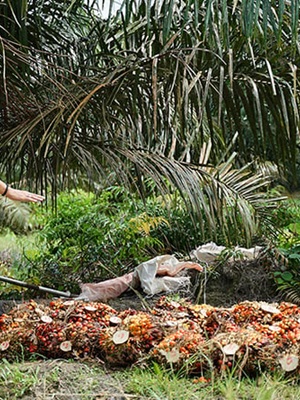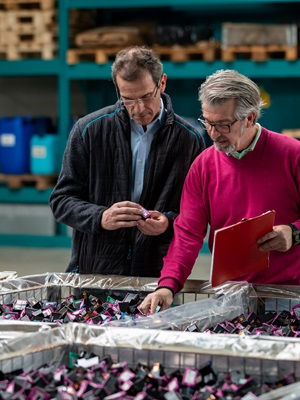The Food Waste Problem
Food waste is a global challenge that has significant environmental and social consequences. Annually, it accounts for 8% of global greenhouse gas emissions, substantially contributing to climate change. Food waste includes items like that soft carrot at the back of your fridge, potato peels discarded while making chips, or leek tops that seem unusable. But is there a way to use them?
Food that decomposes in landfills releases methane, a gas that traps 80 times more heat than carbon dioxide (UNEP, 2022). This highlights the importance of addressing food waste from both individual and business levels.
Food spoilage occurs not only happens in our homes, but even during transportation and before it reaches the supermarket. An area larger than the size of China is used to cultivate food that ultimately goes uneaten (Earth.org, 2024). Therefore, purchasing locally grown produce is advised - shortening the distance from farm to table minimizes food waste.
To tackle the global food waste issue, an annual investment of $18.4 billion is needed, which breaks down into $4.8 billion from the public sector, $11.2 billion from the private sector, and $2.4 billion from philanthropic contributions (ReFED, 2023). Such investments could significantly divert 21 million tonnes of food waste each year, leading to a net financial gain of $78 billion, conserving 6 trillion gallons of water, cutting down 113 million tonnes of greenhouse gas emissions, and generating 58,000 jobs through comprehensive solutions (ReFED, 2023).
What’s the impact on humans?
Food waste is closely connected to the need for increased agricultural production, creating a cycle that can adversely affect human health. As consumers increasingly prioritize nutrition, the methods used to boost food production often compromise the nutritional quality of the food itself (FAO, 2019). This issue is compounded by rising populations, which tend to prioritize quantity over quality.
Unsustainable farming practices, such as monocropping and excessive use of chemical inputs like fertilizers and herbicides, contribute to soil degradation and diminish the nutrient density and balance in crops. This can lead to a decline in the overall health benefits of the food we consume. Furthermore, the heavy reliance on antibiotics in livestock farming has raised concerns about the emergence of antibiotic-resistant bacteria (WHO, 2017), posing significant health risks to humans, including increased susceptibility to cancers and reproductive and hormonal issues.
This paradox reveals the inefficiencies within our food systems and highlights the urgent need for systemic change. We must adopt innovative solutions that not only reduce food waste but also promote sustainable agricultural practices that are more beneficial to human health.
What role does the hospitality industry play?
The hospitality industry, encompassing hotels, restaurants, cafes, and other meal-serving businesses, plays a significant role in the food waste problem. Roughly 12% of global food waste originates from this sector, equating to approximately 1 billion meals wasted each day, while millions of people around the world face hunger (UNEP, 2024).
To combat food waste, various strategies and solutions are available within the hospitality industry. Technologies like waste tracking, food-saving apps like CHOMP, markdown alert applications, along with methods such as portion control and intelligent routing, are at the forefront of food waste reduction efforts (ReFED, 2023). Additionally, low-cost or no-cost strategies, such as streamlining menus or switching to local suppliers, can also effectively reduce waste.
Addressing food waste in the hospitality sector not only benefits the environment but also enhances business profitability, making it a crucial area for improvement.
What about in Hong Kong specifically?
The food waste issue in Hong Kong is staggering, with 3,437 tonnes generated daily, which constitutes 30% of the city’s total general waste. Despite various efforts to address this problem, food waste increased by 5.6% from 2020 to 2021 (EPD, 2024). Notably, 26.3% of this waste originates from commercial and industrial sectors, including the vast array of food and beverage venues—Hong Kong boasts one of the highest amounts of F&B establishments per capita in the world, with over 18,000 establishments, such as coffee shops, bakeries, restaurants and even cha-chaan tengs.
Complicating the situation is the fact that over a quarter of the population lives in poverty, facing food insecurity and malnutrition (HK Census Data, 2020). This creates a moral imperative to tackle food waste, and presents opportunity for the F&B community to make a meaningful impact by supporting those in need.
Posted 12/09/2025

















